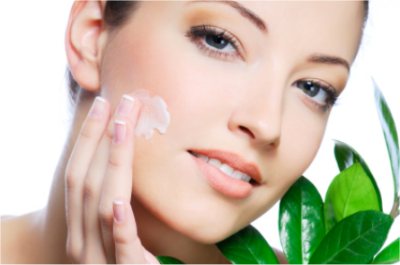All Natural Cosmetics?

There is a proliferation of all natural cosmetics these days—from makeup to skin care to hair care. In fact, it is so easy to manufacture cosmetic products and market them as “natural,” because of the lack of industry regulations concerning the use of buzzwords like “organic” and “natural” on the labels of these products. The result: every cosmetic manufacturer brazenly rides the “natural” bandwagon, misleading consumers into thinking that everything that contains “organic” and “natural” on their labels are what they think they are.
Unfortunately, there are a lot of misconceptions about these so-called all natural cosmetic products that consumers ought to know in order to protect themselves. Let us identify some of these frequently asked questions and issues.

Do the words “organic” and “natural” on product labels mean what we think they do?
Not really.
The fact is that the Cosmetic Industry is self-regulated. Consumers have to take extra caution when purchasing products with the word “natural” on the label. This is because there is no law that imposes an obligation to cosmetics companies that claim that their products are all natural cosmetics. This means that manufacturers can simply claim “natural” on their label without any basis. It is therefore still best to check the ingredients. The same is true with “organic” claims. Companies are allowed to put “organic” in their labels if there is as much as an iota of organic ingredient in the product, regardless of whether the rest of the formulation is synthetic.
Can I trust organic certifications?
It depends.
There are different levels of certification, and you have to know what each level signifies so you know what you are getting from the product that you are buying. For example, there are certain certifications that only require the product to be organic up to a certain percentage. The certifying bodies likewise differ in terms of the requirements and how strict these are enforced. So if you want to be sure, you will have to spend more time researching.
Do you need to read the labels? Is it safe to presume that the government and the industry would not make any product publicly available if it is harmful?
This is a very common and dangerous misconception. If you have had occasion to check a list of hazardous ingredients, and the companies that commonly use them, you will never feel safe again because many of them are brazenly peddling their products in the major beauty counters of major department stores. They are able to do this because there is nothing that prohibits them from doing this. The Cosmetic Industry is not regulated, which means manufacturers can pretty much do what they want and claim what they can, because nobody will check on them.
What are the things that you should remember when buying organic or natural skin care products?
First, remember that “natural” and “organic” are two different things. And neither of the terms necessarily mean safe or effective. Second, “organic” does not mean all the ingredients are. Look for products that declare how much of the formulation is organic. Finally, cosmetics manufacturers are not required by the government to seek certification. This means that if the product does not contain any certification, it is not necessarily safe.
